Although Switzerland hosts only a small part of the Mont Blanc massif, there are two pretty large glaciers there: Glacier du Trient and Glacier de Saleinaz.
Saleinaz glacier (French: Glacier de Saleinaz) starts at the foot of 3900 m high Aiguille d’Argentière. From there the glacier flows for six km eastward and gets narrower along the way. Mountains like Aiguille du Chardonnet, Grande Fourche and Aiguille de l’A Neuve (all about 3600 m) surround the glacier and feed it with snow.
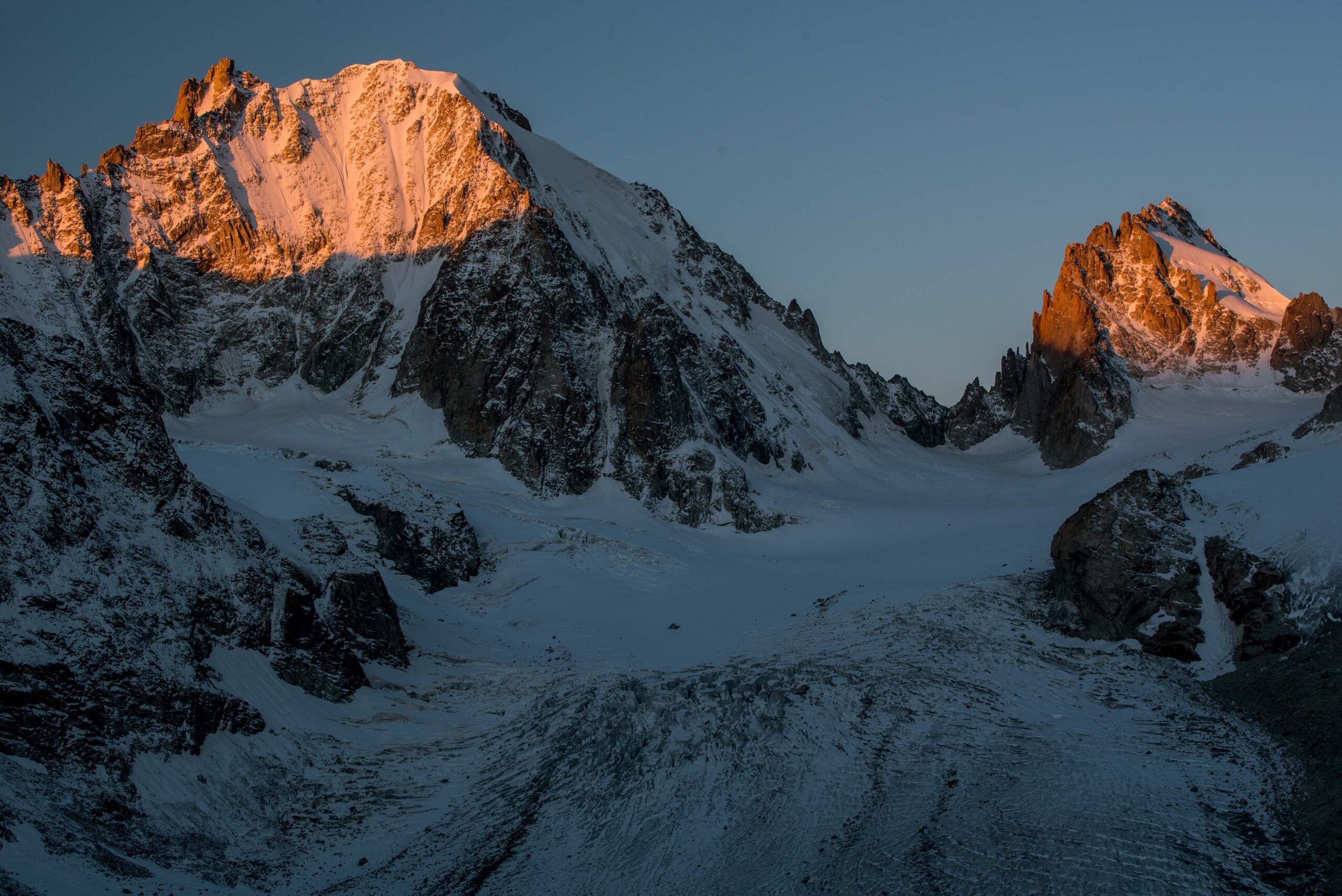
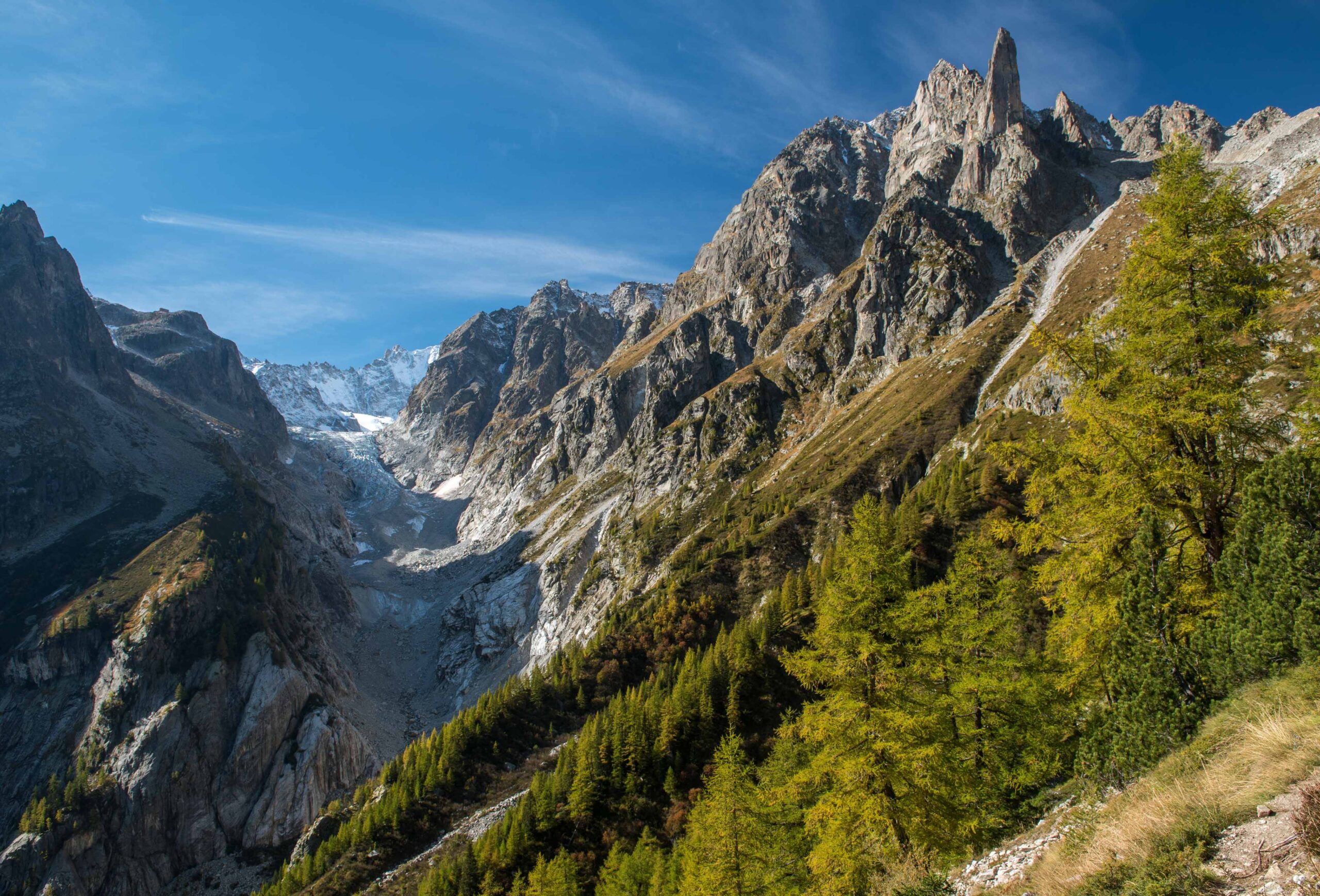
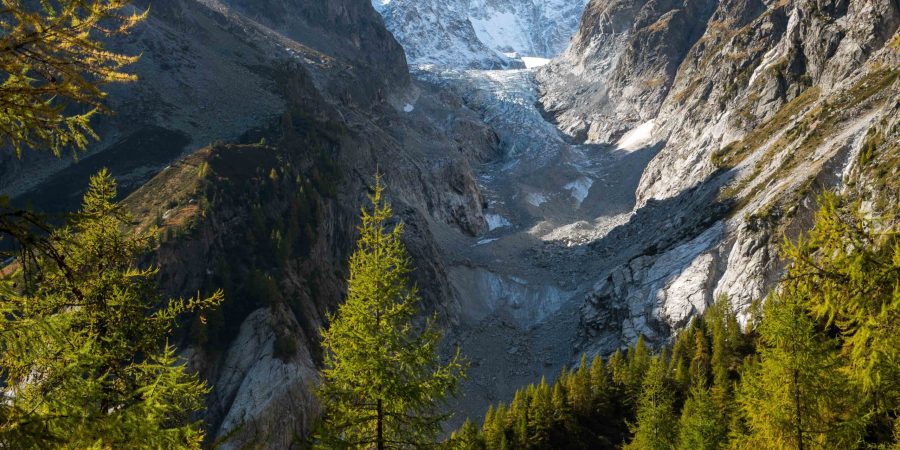
Right below the mountain hut Cabane de Saleinaz the glacier descends steeply into a gorge. It goes on for another two kilometers and stops at 2100 m. The reason why this glacier descends to such a relatively low altitude is its location in a shaded gorge. Also, Glacier de Saleinaz is debris-covered, protecting it even more from the sun.
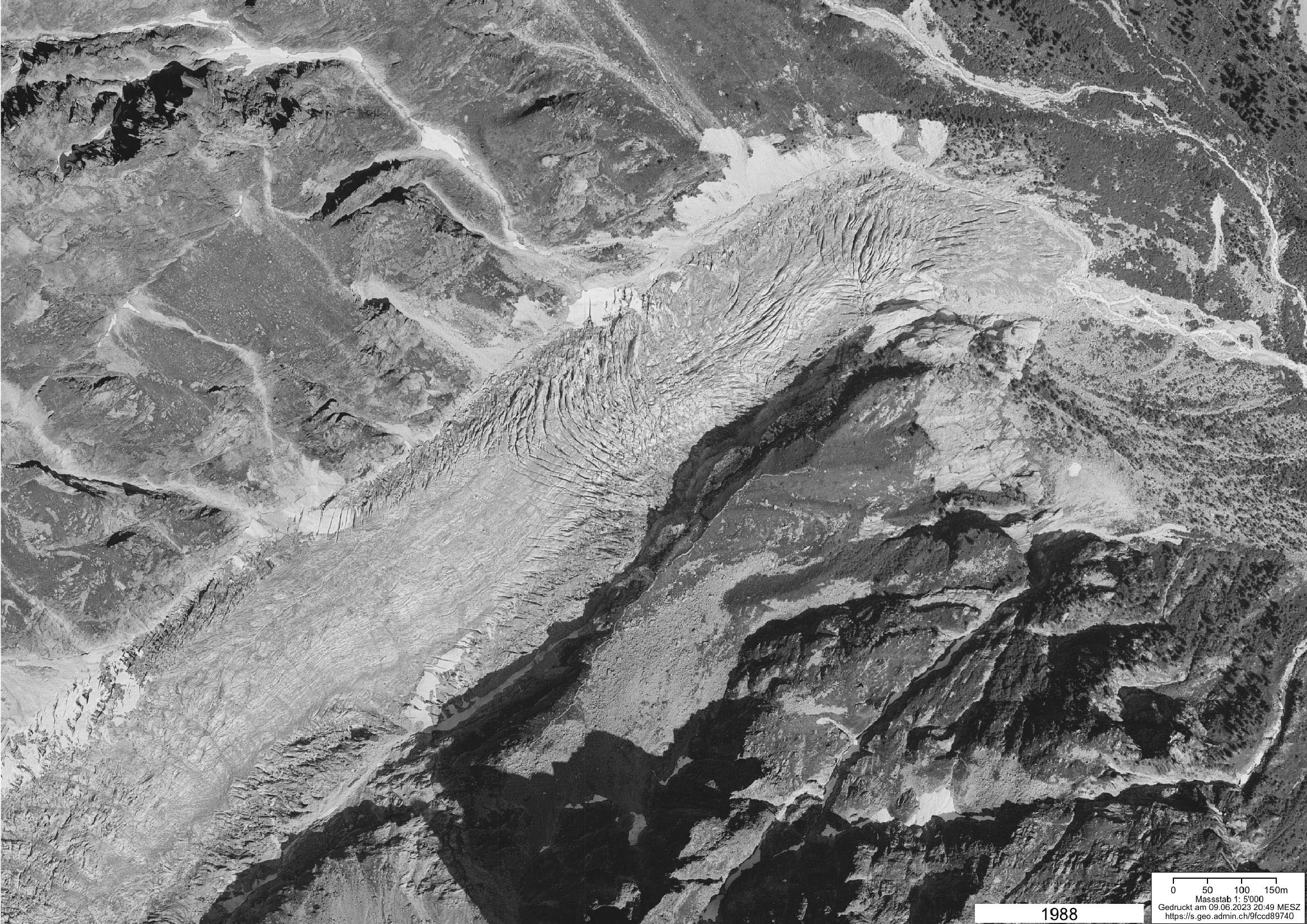
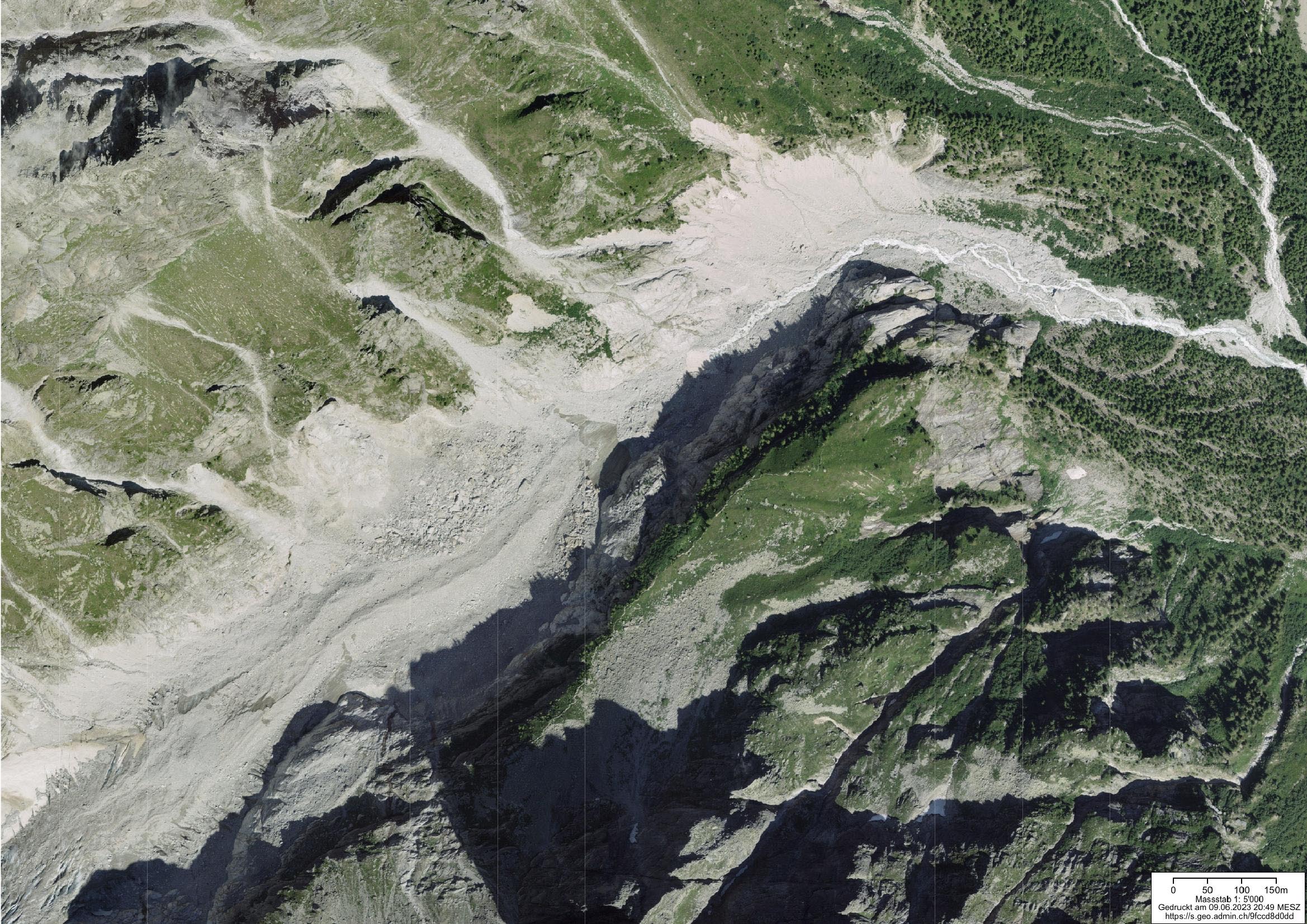
Glacier de Saleinaz in 1988 (left) and 2020. Source: swisstopo zeitreise.
Glacier de Saleinaz hasn’t always been this debris-covered. When the glacier was thicker it was pressed up against its own moraines. But now the ice is thinner, the moraines are unstable and fall down onto the glacier. Furthermore, shrinking glaciers have lower flow velocities. The snout of Glacier de Saleinaz hardly moves anymore, so debris isn’t carried away and just piles up.
Accumulation of debris isn’t the only result of glacier thinning. It also makes it harder to cross the glacier, which is needed to go from Cabane de Saleinaz on the south side of the glacier to a small bivouac on the other side. As the glacier is thinning it is becoming harder to get onto its surface, because the sides are composed of instable moraines. With continued global warming, climbing and descending the moraines won’t get any easier.
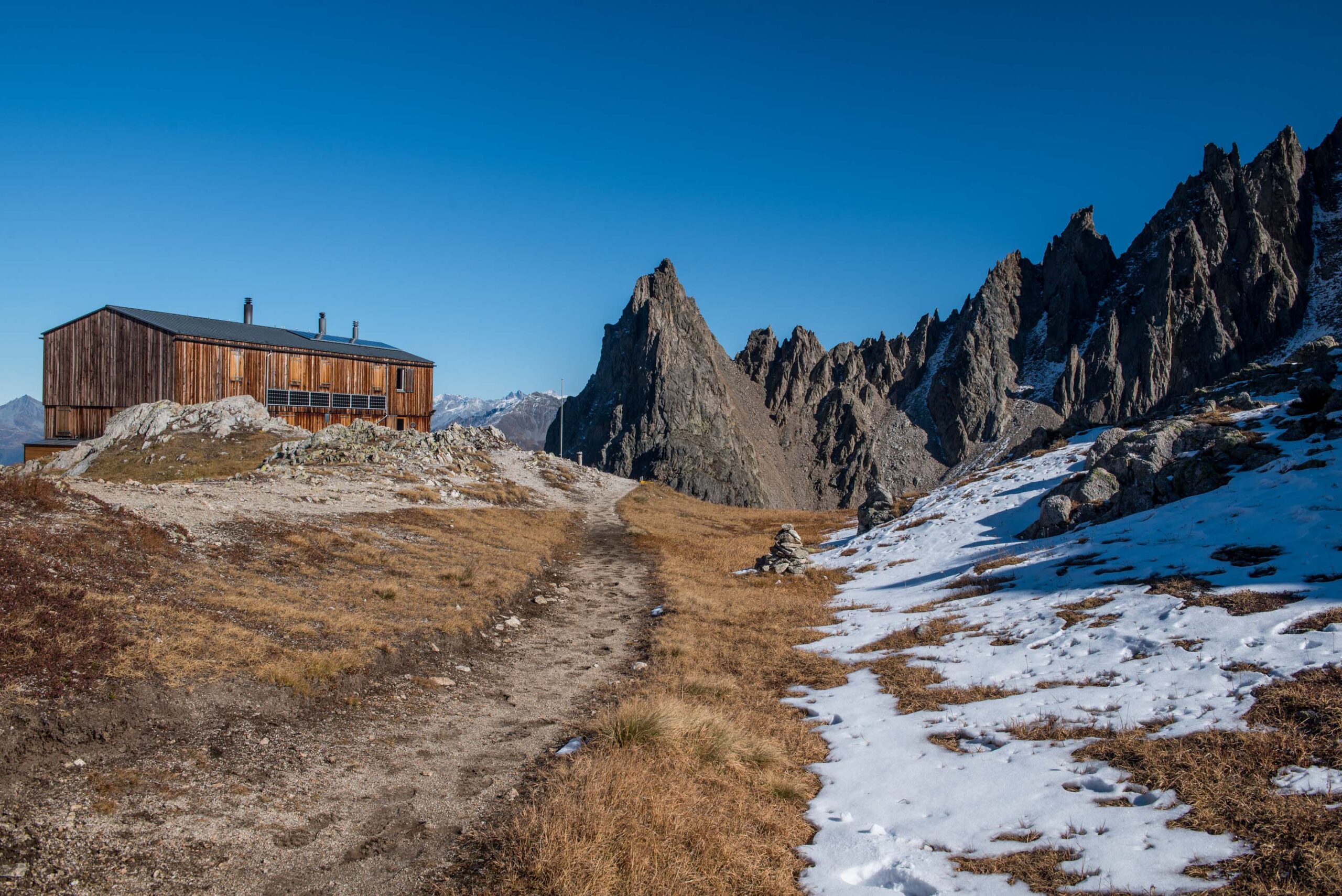
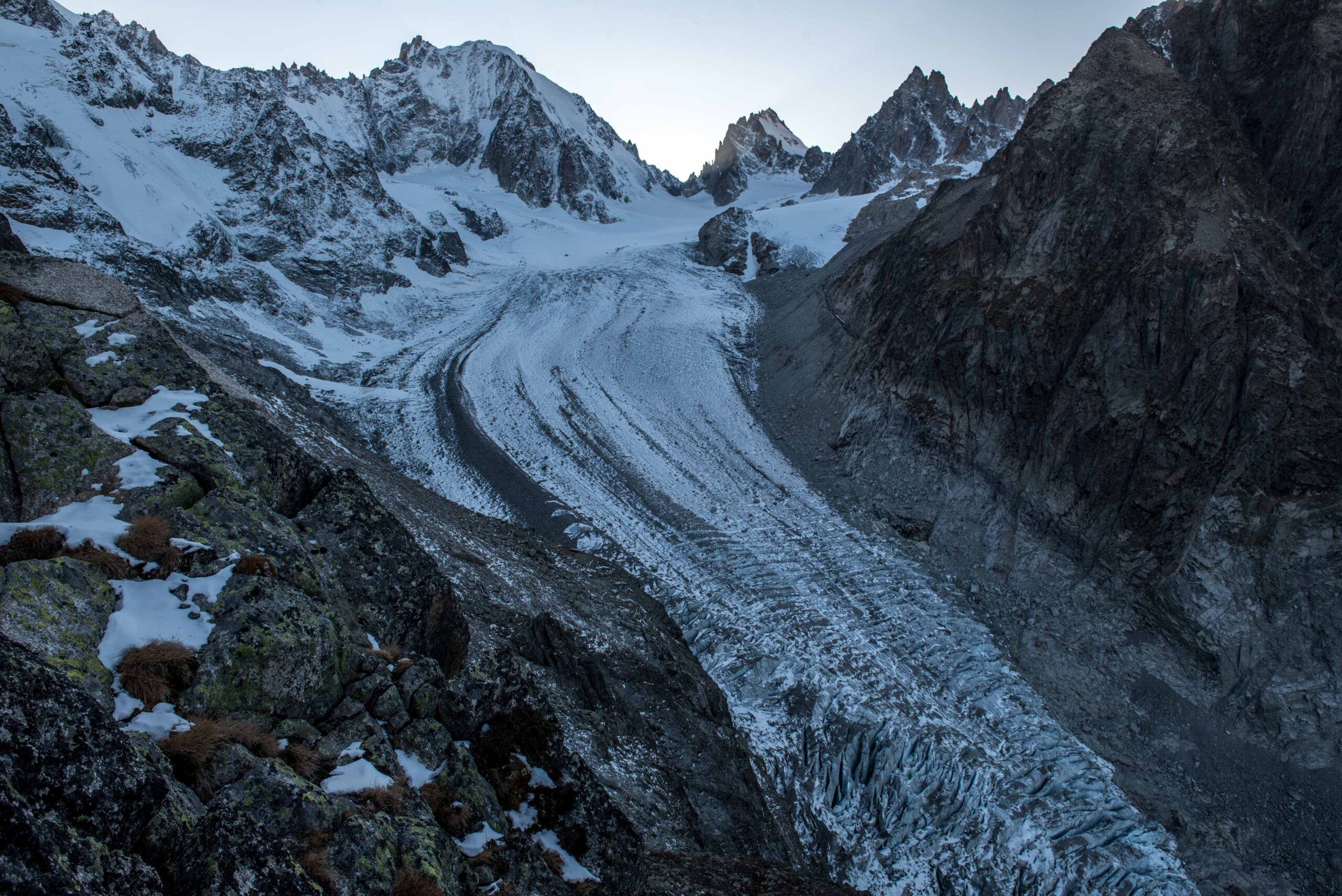
Search within glacierchange: